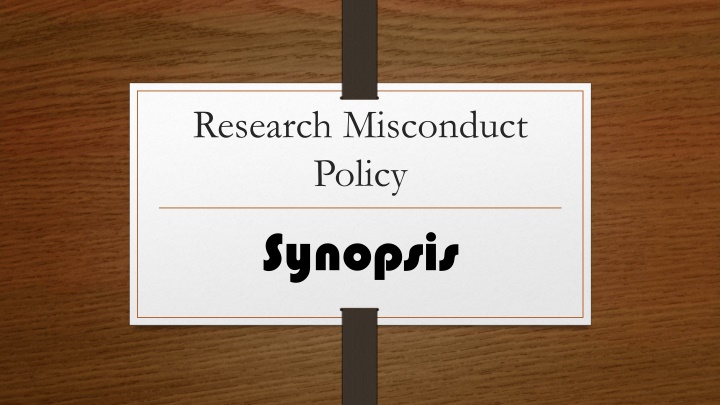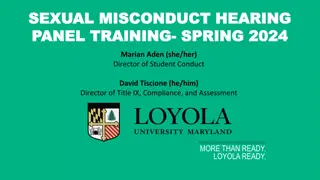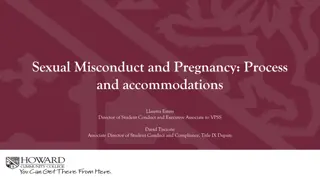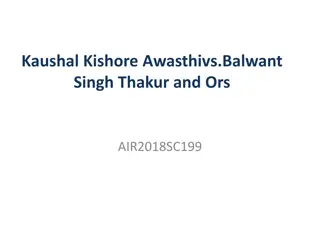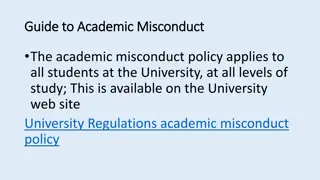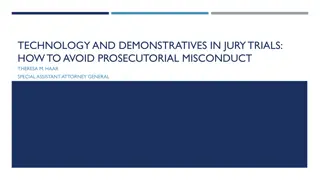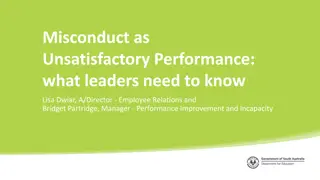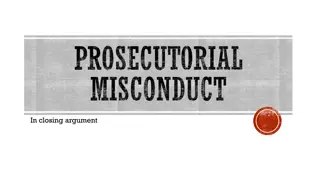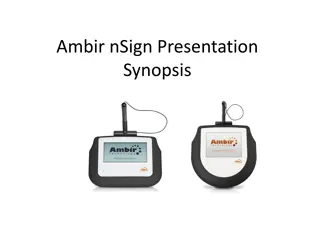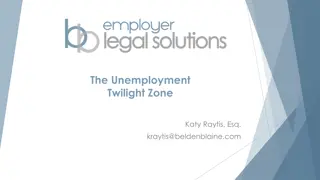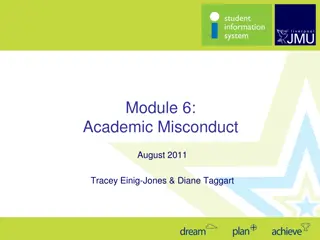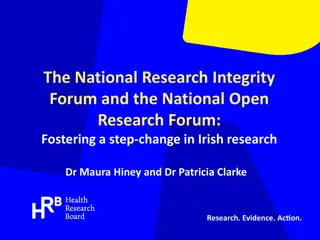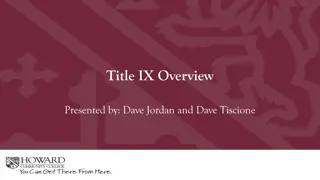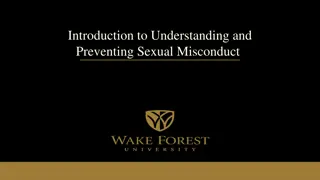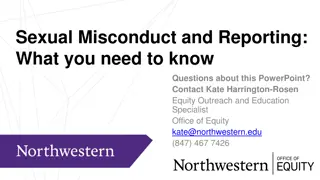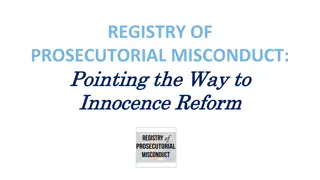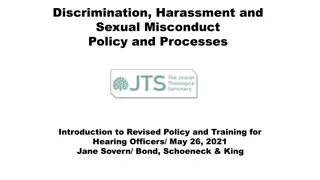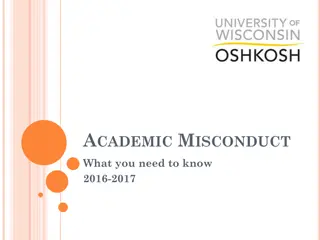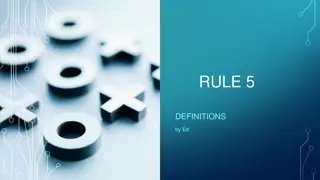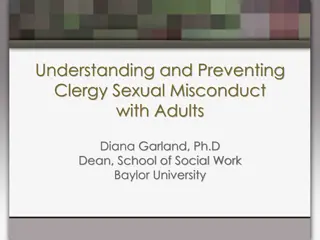Research Misconduct Policy Synopsis
Department of Health and Human Services defines research misconduct involving fabrication, falsification, plagiarism, and non-compliance with regulations. Criteria for research misconduct include intentional or reckless behavior that significantly departs from accepted practices and can be proven by evidence. Learn what is NOT considered misconduct and the institutional requirements for addressing research misconduct incidents. Explore Morgan State University's policy on maintaining honesty and objectivity in research. Discover the steps involved in dealing with research misconduct using the provided flowchart.
Download Presentation

Please find below an Image/Link to download the presentation.
The content on the website is provided AS IS for your information and personal use only. It may not be sold, licensed, or shared on other websites without obtaining consent from the author.If you encounter any issues during the download, it is possible that the publisher has removed the file from their server.
You are allowed to download the files provided on this website for personal or commercial use, subject to the condition that they are used lawfully. All files are the property of their respective owners.
The content on the website is provided AS IS for your information and personal use only. It may not be sold, licensed, or shared on other websites without obtaining consent from the author.
E N D
Presentation Transcript
Research Misconduct Policy Synopsis
What is Research Misconduct Department of Health and Human Services defines research misconduct as: Fabrication making up results and recording or reporting them. Falsification manipulating research materials, equipment or processes or changing or omitting results such that the research is not accurately represented. Plagiarism appropriating someone else s ideas, processes, results or words without giving proper credit. Deliberate or repeated non-compliance with the regulations can be considered misconduct.
Criteria for Research Misconduct Represents a significant departure from accepted practices Has been committed intentionally, or knowingly, or recklessly; and Can be proven by a preponderance of evidence
What is NOT Misconduct 1. honest, unintentional error 2. honest differences of opinion
Institutional Requirements Establish policies and procedures for investigating and reporting instances of alleged research misconduct Provide training and education Promote ethical and responsible conduct of research Provide support to assist with correcting occurrences of misconduct
Morgan State University Policy Maintain high standards of honesty, accuracy and objectivity in science and other scholarly and creative works, to prevent research misconduct where possible, and to evaluate and to resolve promptly and fairly instances of alleged or apparent Research Misconduct. Take appropriate remedial and disciplinary action in response to findings of Research Misconduct.
Research Misconduct Investigation Flowchart Report allegation to RIO Allegation Evidence of possible research misconduct STEP DECISION PROCESS STOP No research misconduct. Inquiry is not warranted, case closed. Possible Research Misconduct NO Assessment YES Inquiry report written Gathering Information, Interview Complainant and Respondent Inquiry (Inquiry Committee appointed) Notify respondent Investigation not warranted, conclude inquiry Further Investigation needed NO YES Investigation (Investigation Committee appointed) Examine evidence, Interview parties, Ensure impartiality Investigation report written Notify respondent Research Misconduct is not confirmed, investigation closed Recommendation for sanction. Research Misconduct determined YES NO Step 1: Allegation Step 2: Assessment (Research Integrity Officer) If no, Not research misconduct. Inquiry not warranted, triage as appropriate If yes, Inquiry warranted Step 3: Inquiry (Committee) If no, Investigation not warranted If yes, Investigation warranted Step 4: Investigation (Committee) If no, Research misconduct not confirmed If yes, Research misconduct confirmed Step 5: Recommendation for sanction Step 6: Appeal Process (Optional) Respondent Contest Recommended actions taken NO Appeal Process YES
